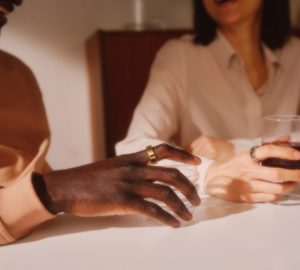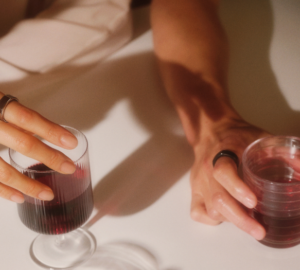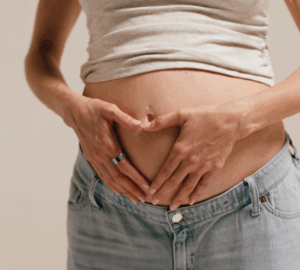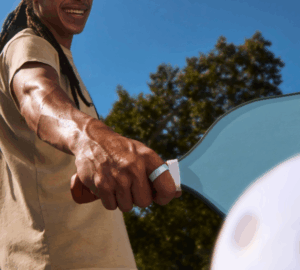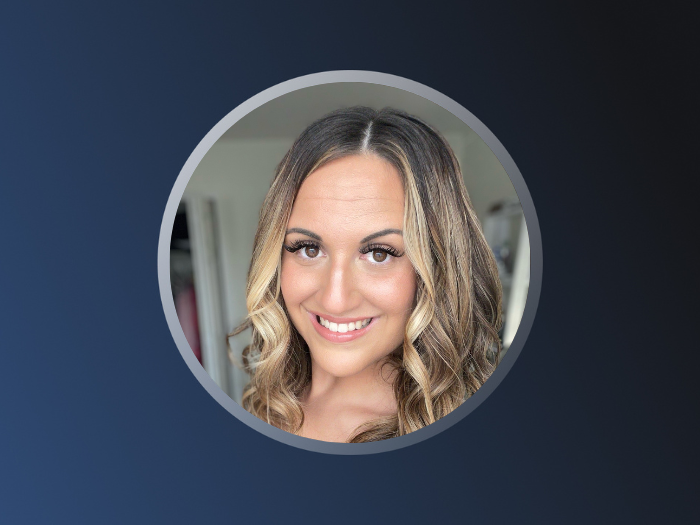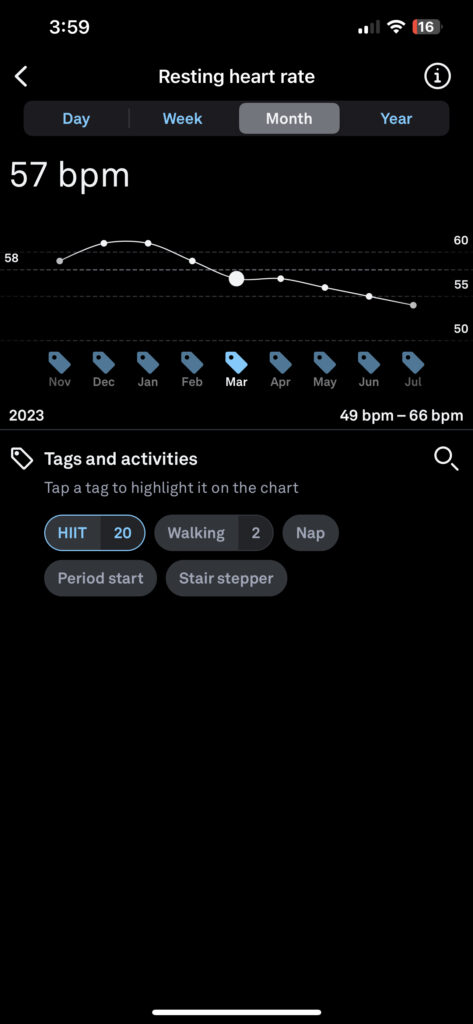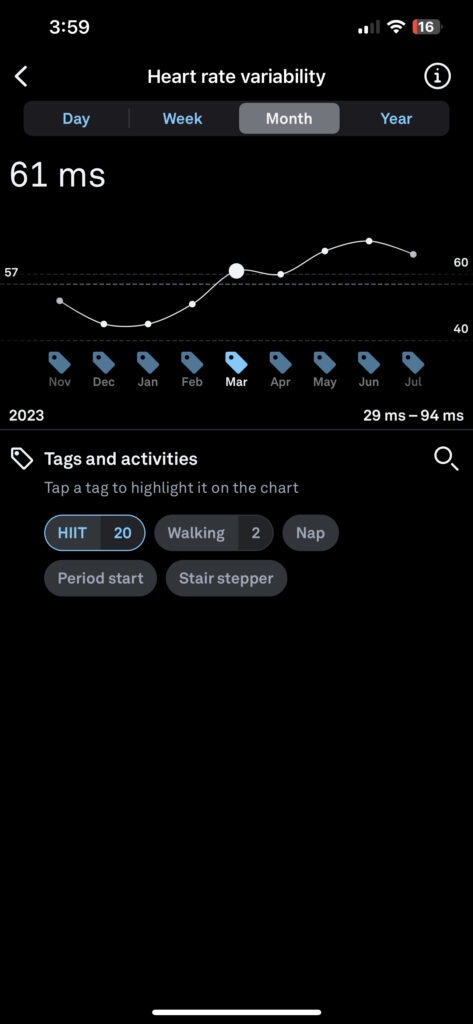Who: Tricia S., 29, Oura employee, New York
Helpful Oura tip: Tricia was only noticing small improvements in her RHR and HRV week by week. But using the Trend view on the Oura App, she was able to see how those small changes compounded into big improvements over the course of a year.
How did you discover Oura?
I have worked in the wearables space for five years so I’ve always been aware of Oura, but I officially joined the team and got my own Oura Ring in 2022. In the past 18 months, I’ve lost 75 lbs. Oura has made it easier to stay on top of my workouts and recovery to make sure I’m continuously getting results without burning out.
RELATED: How This Member Used Oura to Support Her Weight-Loss Journey
Congratulations! Tell us about how you lost 75 lbs.
Growing up, I always played sports. But then when I went to college I became a couch potato and completely stopped working out – this continued for the years after college too. My sleep got bad and for years I struggled with it, until I went to a doctor who prescribed me sleeping medication.
The medication helped me sleep. But I started gaining weight rapidly and I didn’t know why. I ended up gaining 70 lbs in a little over a year. My doctor did some tests and discovered I was prediabetic. My mom is diabetic, and it runs on both sides of my family, so this was an obvious concern. My doctor told me if I didn’t lose weight in five years, I’d be diabetic.
I got a referral for an endocrinologist who saw nothing unusual, but when they asked about my medications, they immediately pinpointed that as the problem. The medication was an appetite stimulant.
I came off the medication and lost some of the weight, but my poor sleep returned. I started trying everything I could to lose weight and sleep better – restrictive diets, tough workouts, melatonin, magnesium – you name it.
Then, in 2021, I discovered a boot camp gym. For the first time, I enjoyed a workout. I did a six-week challenge and in that time, I found a community and fell in love with exercise.
In the past year of going to this gym, I’ve completely transformed my life. I’ve lost 75 lbs, I sleep better than ever, I have inspired others, met amazing friends, and my confidence has skyrocketed.
Now, I usually workout six times a week, and I’ve got a clean bill of health from my doctor.
READ MORE: Defining Low, Medium, and High-Intensity Movement & Using Oura to Track It
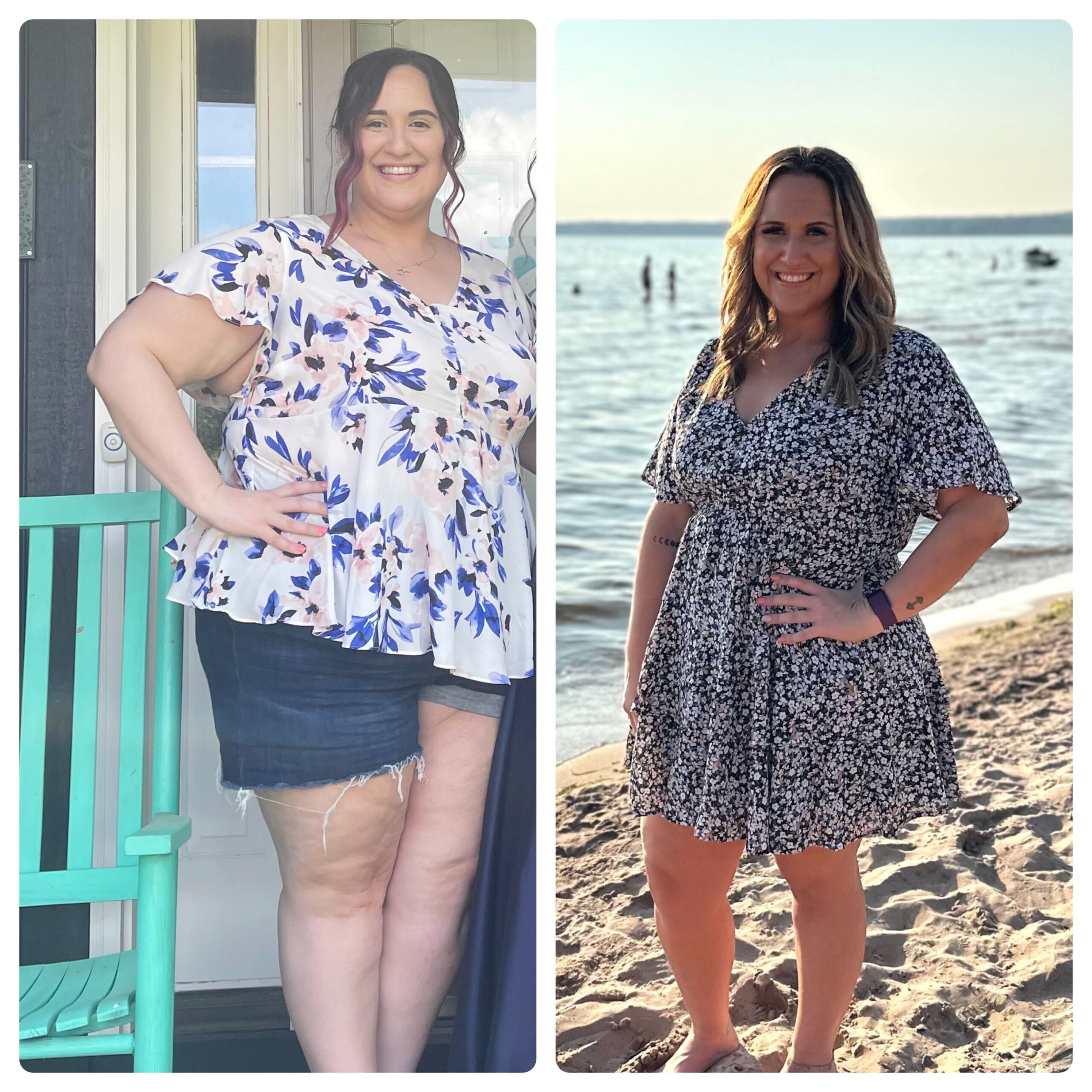
How have you used Oura during this process?
I have used Oura to track absolutely everything. Most importantly, I track every workout, my workout heart rate while running, my recovery, and my sleep.
As I have worked in the wearable space for years, I have a good understanding of each metric. This is an advantage because I know what to look for. When my resting heart rate (RHR) started to come down, I knew that it was a sign that my body was responding well – without even needing to look at the scale.
I’ve also learned that you should only ever focus on your own data. Oura is a constant reminder that my progress can only be measured by my own starting point. I think it’s easy for people on a fitness journey to compare themselves, which can throw them off track.
It doesn’t matter if someone has a heart rate variability (HRV) double what yours is – it only matters what your baseline is and where you are in relation to that.
I use Oura’s personalized insights to decide my fitness routine, which changes week-to-week depending on how my body is responding. For instance, I recently had a few days with diminishing Readiness Scores. I felt sore but pushed through and worked out. During my workout I felt weak and sluggish, so I decided I needed to listen to the data, turn on Rest Mode, and take a week off working out.
After my week off, I had the best workout I’d had in months. Plus, my Readiness and Sleep Scores were high, showing that my body had made a full recovery!
I rely heavily on my Oura data to ensure I’m balancing my activity with recovery. I have previously followed intense workout plans that disregard how I’m feeling, which only ever ends with me quitting. I’ve learned that to stay consistent, I need to work with – rather than against – my body.
READ MORE: How Sleep Helps Muscle Recovery and Growth
How has your transformation affected other areas of your life?
There hasn’t been one aspect of my life that hasn’t improved from this transformation.
I’m more confident than I’ve ever been, which has helped me in dating, friendships, and professionally. I’m less burned out at work, I have a better work-life balance, and my workouts give me an endorphin boost to feel motivated and happy throughout the day.
I went from the person hiding in the corner of the gym, to the person in the front, motivating others. My confidence is projected onto others; people from my gym routinely reach out to let me know that I have inspired them.
I post a lot about it on social media too. I think it’s important for people to see someone they can relate to. In the fitness industry, you often see someone’s endpoint, and not their journey. It’s important to share my full experience with transparency.
LEARN MORE: Energize Your Work Routine With Movement
How has your relationship with fitness changed?
I used to view exercise as a chore. Now, it’s a lifestyle. Some days I don’t feel motivated, but I’ve created the routine, so it’s easy to follow through and show up. So many times I’d quit my restrictive workout plan because I’d miss one workout. Now, I take things day by day. My favorite quote: “You don’t have to be perfect, you just have to be consistent.”
I used to think that you have to be the smallest person in the room to be valid in a fitness setting. But that’s not the case. You just have to show up and have a positive attitude.
Exercise can be (and should be!) fun. I truly enjoy my workouts and have found what I love. For me, that is what makes it sustainable.
As a wearable pro, what advice would you give to someone who is interested in using Oura as part of a health transformation?
1. Spend some time learning what each metric means.
There are great resources on the Oura website and blog that explain each one. That way, when you notice your RHR is elevated, you’ll know it’s time to rest.
Check out Oura 101s on The Pulse Blog here.
2. Look for trends and patterns in your data.
Keep an eye out for trends in your data. This is how you’ll be able to get a full picture of how your lifestyle changes are impacting you.
Before losing the weight, my RHR was in the 70s. Now, it’s in the 50s, sometimes even the 40s. It only changed slightly week-by-week, but when I put it in Trend view – I feel really accomplished to see the improvements over time.
3. Trust the data.
Once you know what the metrics mean, listen to the data! Trust what it’s telling you, even if you think you know better. You may not feel your low Readiness Score now, but during your workout it’ll catch up on you!
RELATED: At 50, This Oura Member Hit a Lowpoint — Now at 63, She’s Fitter than Ever
What’s Your Oura Story?
Everyone’s story is unique, and we’d love to hear yours. Share your story here.







